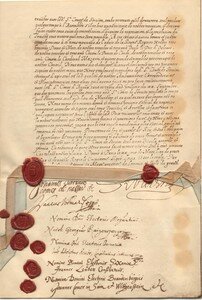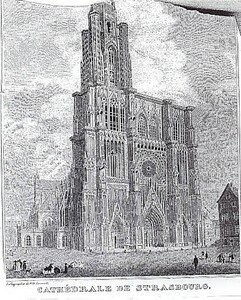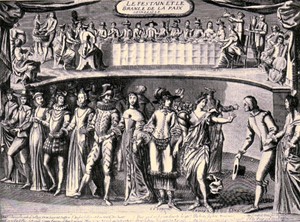WESPHALIA TREATIES 1648
We know what the Thirty Years War brought, misery, diseases on the Alsatian and Lorraine population but what do we know about the Westphalia Treaties?
ALSACE made of pieces of lands where the emperor was not the absolute owner, who had the same rights everywhere, was in the middle of all the discussions always bitter, hard and skilful also often confused, without any conclusion as for: what would give exactly the emperor? Were they suzerainty rights or land rights? What will he give as he was the emperor of Austria?
Confusion was in all the text of the treaties. Confusion in the deeds about rights, lands, and the emperor gave and took back.
The 87 article and some others gave and took with an equal satisfaction for every part. Battles and treaties were the first interest of princes, and a mutual and undisclosed intention ran implicitly between paragraphs: to be opened to claim, and not to limit finally France for Germany or Germany for France.
When STRASBOURG began French in 1681, it was logically the result of a new state "from 1648" as told later Kratz the Mayor of Strasbourg «Strasbourg orbited to the centre which finall y absorbed it."...
One of the last pages of the Treaty of 1648 with stamps and signatories - facsimile - (C.Tomat-Mura’s personal collection)
In order to explain the dramatically vagueness of 1648, the King chose in the Courts of Justice from several towns some of their chambers which had to specify which of the articles were shady in the last treaties. They had also to search and to gather all what may be attached by virtue of old feudal deeds or recent treaties... The NIMEGUE Treaty (1679) confirming the WESPHALIA Treaties , the Sovereign Council of BRISACH wrote comments in order to unify the country: it proclaimed the absolute sovereignty of the King in Alsace and attached Strasbourg where royal troops were living in the following years (1681); the republic of STRASBOURG, in the influx of troops, hesitated, and was sometimes with one and sometimes with another, incidents were numerous and Louvois took the advantages in order to confirm what was decided in the Council of BRISACH.
The King maintained its Constitution and its religious freedom, which means freedom of Protestant religion. Catholics called for his: on October the 24th of 1681, when Louis XIV arrived with great pomp in front of the cathedral, bishop François-Egon from FURSTEMBERG, who was a devoted servant of the royal political, showed «such happiness as the one of the blessed Siméon receiving the infant Jesus in the Temple of Jerusalem".
From then on, "Gaul was closed to German" Clausa Germanis Gallia: these three words which were on the coin made in honour of the meeting represent how STRASBOURG was important for FRANCE. In 1697, the RYSWICK treaty devoted the all transfer to the town with all its outbuildings situated on the left bank of the Rhine and "and for this occasion STRASBOURG was wiped off the register of the Empire".
The feast of the Treaty of WESPHALIA 1648 (Anonymous engraving)
From Georges DELAHACHE Petite Histoire de l'Alsace-Lorraine Editions Alsace-Lorraine 1918 (imprimerie Jean Cussac Paris) -All rights reserved-








/https%3A%2F%2Fassets.over-blog.com%2Ft%2Fcedistic%2Fcamera.png)
/https%3A%2F%2Fstorage.canalblog.com%2F13%2F69%2F261813%2F32037873_o.jpg)
/https%3A%2F%2Fstorage.canalblog.com%2F42%2F66%2F261813%2F10856917_o.jpg)